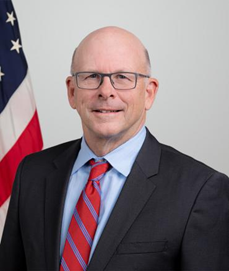FDA officials said implementation of a proposed Human Foods Program will strengthen the oversight of dietary supplements and the effectiveness of the Office of Dietary Supplement Programs.

As FDA announced at the start of the year, we are embarking on an ambitious plan to transform our current organizational structure in the various foods programs across FDA into a unified Human Foods Program (HFP).
Some stakeholders have raised concerns about how dietary supplement oversight fits in this new vision and the potential impact on the Office of Dietary Supplement Programs (ODSP). We take these concerns seriously.
While ODSP has done a tremendous job in advancing the regulation of the marketplace, dietary supplement oversight has faced challenges given the size and diversity of the industry and its products when compared to available resources, the largely post-market nature of its oversight, and the unique issues and expertise needed to effectively regulate the marketplace. We believe that implementation of the HFP proposal will strengthen the oversight of dietary supplements in general and the effectiveness of ODSP in three main ways.
First, as proposed, ODSP will remain a distinct office and be integrated into a new larger office called the Office of Food Chemical Safety, Dietary Supplements and Innovation (OFCSDSI). This new office will leverage FDA information systems and scientific expertise that apply to pre-market reviews and post-market surveillance of substances added to conventional foods or dietary supplements.
Aligning our surveillance efforts and safety assessments through the same risk management area will advance the efficiencies of these existing programs, but also provide opportunities for the early identification of potential public health threats that may affect the different commodities.
The opportunity to integrate the scientific expertise that applies to safety evaluations of both foods and dietary supplements and collaborate in promoting innovative ingredients for the conventional food and dietary supplement marketplaces would advance both programs.
But ODSP would retain the important dietary supplement perspective in applying the appropriate statutory authorities to supplement-specific matters.
Second, the proposal will increase accountability and transparency to stakeholders regarding priorities for dietary supplement regulatory activities and use of our programmatic resources. Congressional appropriations for dietary supplements dictate the level of effort we can bring to dietary supplement oversight and FDA is committed to using our resources as Congress specifies.
Under the proposed redesign of the HFP, ODSP will remain the lead office responsible for executing the agency’s unique dietary supplement responsibilities. ODSP will retain its own line status in the FDA budget, providing a clear delineation between funds spent on dietary supplements and those expended for other specific programs.
And finally, the proposed reorganization will bring greater clarity to decision making. For example, many functions critical to the regulation of dietary supplements are divided across multiple offices beyond ODSP, including inspections, import operations and testing.
This realignment intends to address fundamental organizational challenges in our current structure by modernizing inspectional and compliance processes, defining decision rights, mapping resource allocation to allow greater risk prioritization, improving operational relationships between field and program laboratories, enacting an enterprise-wide transformation of how the entire field workforce operates, realigning state and local partnership programs, and redesigning the HFP from stem to stern.
These are not superficial fixes but rather well thought out improvements that will deliver a program designed to operate with greater agility, effectiveness and efficiency.
In sum, our proposed structure of a larger Office of Food Chemical Safety, Dietary Supplements and Innovation will ensure that our responsiveness to dietary supplement issues and inquiries will not be diminished. To the contrary, we will continue to prioritize additional resources and modernized authorities to strengthen our oversight of the dietary supplement marketplace. FDA will continue to collaborate with our stakeholders to ensure that products marketed as dietary supplements are safe, well-manufactured and accurately labeled.
About the Author(s)
You May Also Like








.png?width=800&auto=webp&quality=80&disable=upscale)